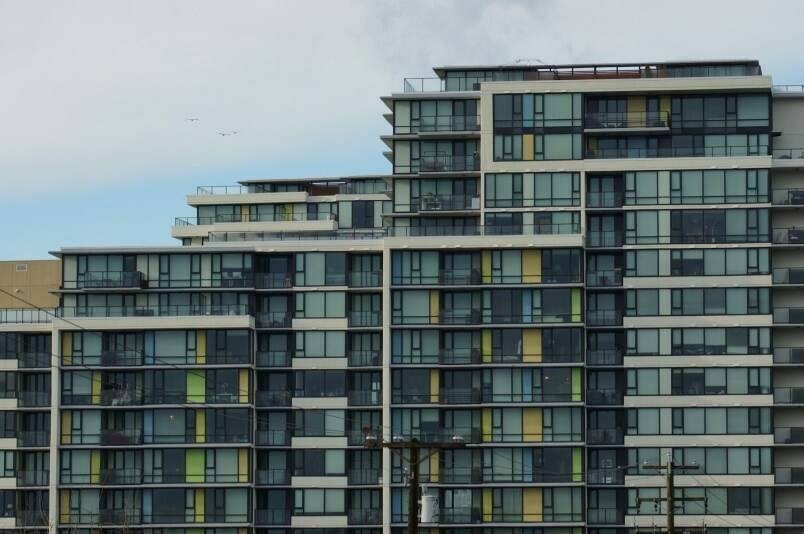Richmond has delayed their rollout for energy step code (ESC) and zero carbon code (EL) requirements after input from local developers.
In 2017, the provincial government adopted the energy step code into the BC building code with the goal of making new buildings net-zero by 2032. In 2018, Richmond became the first municipality to adopt these requirements.
Some local developers, however, are finding it challenging to meet these requirements due to cost constraints, according to a Sept. 19 staff report to council.
These "step codes" incrementally increase the energy efficiency of buildings, with level 5 being the highest for the energy code and level 4 being the highest for the zero carbon code.
Current city requirements consist of either having the highest energy code and a medium-low zero carbon code; having a medium-high energy code and a medium zero carbon code; or a medium-low energy code and the highest zero carbon code.
On Nov. 4, city council decided to keep the city’s current energy efficiency requirements but delayed the next increases in order to match provincial timelines – extending the next increments to 2027, 2030 and 2032 for new single-detached and duplex homes.
Although this change will provide more time to help developers meet requirements, some developers say it’s not enough.
Dana Westermark, principal at Richmond-based development firm Oris Consulting Ltd., said one of the biggest issues with the energy step code system is not being able to use natural gas for heating and cooling – adding complexity to construction and sometimes delaying housing getting to market.
Although heating systems such as air-to-air heat exchangers can be an economical way to heat homes, not having natural gas as an alternative is an inconvenience for households, Westermark explained.
Dealing with extreme cold or in a situation where the power is out for a period of time could be dangerous, he said. Furthermore, this could be troublesome during summertime if power grids become overwhelmed and air conditioning units fail.
Labour also comes into play, as added complexity also includes specialized expertise.
“One of the big things that we're running into in the industry generally is a shortage of people with training to do refrigerants,” Westermark told the Richmond News. “Sometimes it results in projects getting delayed… it adds time, which all translates to cost.”
Amid the housing crisis, obstacles that hinder housing from being built as quickly as possible shouldn’t be created. BC Hydro’s capacity will also be unable to cope with this massive hike in electrical power usage, he added.
“Hydro – they don't have the actual amount of energy,” said Westermark. “Site C is not on stream yet, and even when it comes on stream, it's a very short window before all of the capacity of Site C has been gobbled up.”
Highlighting the importance of a greener future, developers are on board with making buildings more energy efficient – however, the timing has to be in line with all the other pieces.
“There's going to have to be a major upgrade of the infrastructure in order to meet that demand,” he said.
“Until there's a plan to ensure that they have an adequate amount of power, I think it's poor planning to encourage people to develop systems that are totally reliant on electricity, when that electricity might not be available.”
Eva Jin, a Richmond resident and student, spoke before council on Nov. 4 and advocated to maintain Richmond's current energy and zero carbon step codes and not delay the timeline.
Jin underscored the numerous effects of climate change to the environment and to physical and mental health – especially for younger generations.
"As a student in Richmond, I think about these issues everyday," said Jin. "Keeping the zero carbon step code is an important step towards a healthier, more sustainable Richmond."
By keeping this policy, the city can set an example and show leadership in protecting the environment, added Jin.
Richmond’s previous energy requirements were tighter
Before council’s decision to extend the next two increments in the step code to 2027, 2030 and 2032, increments were only two years apart.
Richmond’s energy step codes and zero carbon step codes requirements for new single-detached and duplex homes required developers to match step code 5 and zero carbon code 3, or step code 4 and zero carbon code 4 in 2025.
By 2027, new buildings would have to take the next step and meet the highest requirement of energy code 5 and zero carbon code 4.
As mentioned, council received feedback from new-home developers who were having difficulties achieving even the current step and zero carbon code requirements, as the transition of natural gas heating into electric and air-to-water heat pump systems is creating cost constraints.
Westermark spoke at the city council meeting on Nov. 4 and explained the challenge for fully electrified homes is to ensure reliable and safe heating.
He asked city council to consider reverting the city’s current approach for detached and duplex homes and match the minimum BC Building Code requirements and timelines.
Requirements for 2025 would be reduced to only step code 3, and not increasing requirements to step code 4 until 2027.
By 2030, requirements would be increased to step code 4 and zero carbon code 4 – five years later than Richmond’s original requirements.
With the changes, new developments won't be required to achieve the highest requirements, step code 5 and zero carbon code 4, until 2032.
Got an opinion on this story or any others in Richmond? Send us a letter or email your thoughts or story tips to [email protected]. To stay updated on Richmond news, sign up for our daily headline newsletter. Words missing in article? Your adblocker might be preventing hyperlinked text from appearing.


